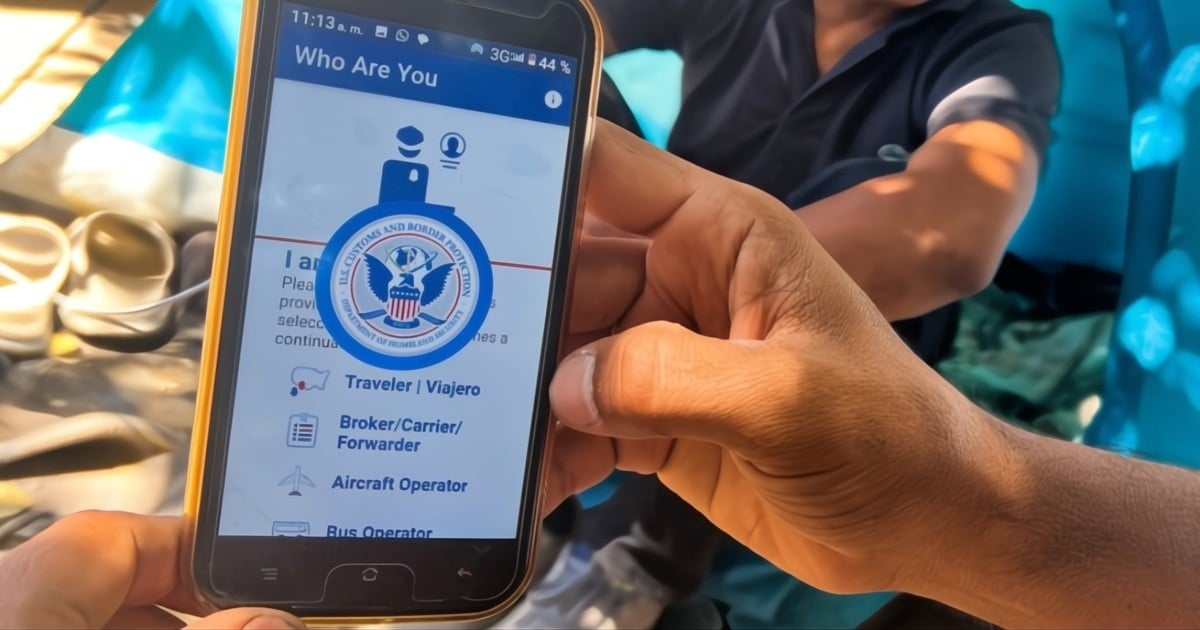Migrants who entered the United States using the CBP One application are now receiving notices from the Department of Homeland Security (DHS), informing them that their temporary parole permits are being canceled. Those who crossed into the U.S. through the southern border via this application are being instructed to leave the country "immediately," according to statements made by authorities to The Associated Press on Tuesday.
"The cancellation of these authorizations fulfills a promise to the American people to secure our borders and protect national security," stated the media affairs unit of the Department of Homeland Security to the news agency. While officials have confirmed that cancellation notices have been sent to CBP One beneficiaries, the exact number remains undisclosed.
The document urges migrants to voluntarily deport themselves using the same application, now renamed CBP Home, which facilitated their entry into the country. "It is time for you to leave the United States," the DHS wrote in messages received by some Cubans, as reported by Univision journalist Daniel Benítez on Monday. "If you do not leave the United States immediately, you will be subject to possible law enforcement actions resulting in your removal from the country," the official communication warns.
The emails reference sections of Title 8 of the U.S. Code to justify the measure and caution that "any benefits you receive in the United States related to your parole, such as work authorization, will also be canceled." Moreover, it adds that affected individuals "will be subject to possible criminal proceedings, fines, and civil penalties" if they do not voluntarily exit the country.
Immigration Policy Shifts in the U.S. Under Donald Trump
The CBP One application was a cornerstone of Joe Biden's administration strategy to create legal pathways into the U.S., aiming to deter illegal border crossings. By the end of December 2024, around 936,500 people had been authorized to enter the country through appointments scheduled via this app at crossings with Mexico.
However, in a significant policy shift, President Donald Trump has canceled these appointments for new applicants from his first day in office, leaving thousands stranded in Mexico who had scheduled appointments through early February. The DHS has been critical of the use of temporary parole under Biden's leadership.
On Monday, the DHS claimed that Biden had utilized this authority more than any president since its inception in 1952, exacerbating "the worst border crisis in U.S. history." In line with this stance, the DHS recently announced the revocation of humanitarian parole, another form of temporary permission granted to 532,000 individuals from Cuba, Haiti, Nicaragua, and Venezuela, who had entered the country by air with financial sponsorship. This permit is set to expire on April 24.
The Trump administration has also declared the end of Temporary Protected Status (TPS) for approximately 600,000 Venezuelans and 500,000 Haitians, though a federal judge has temporarily blocked this measure. Among those affected are about 350,000 Venezuelans who could lose their TPS starting Monday.
FAQs on CBP One and Migrant Status Changes
What is the CBP One application?
The CBP One application was designed to facilitate legal entries into the U.S. by allowing migrants to schedule appointments at border crossings.
Why are CBP One permits being revoked?
The revocation is part of a policy shift aimed at securing U.S. borders and addressing what is described as a border crisis.
What are the consequences of not leaving the U.S. after permit revocation?
Migrants who fail to leave voluntarily may face law enforcement actions, criminal proceedings, fines, and the cancellation of any benefits related to their parole.
